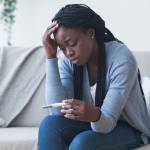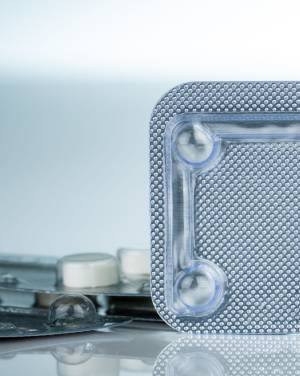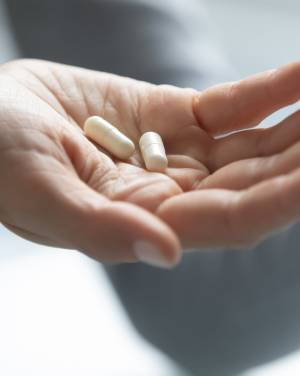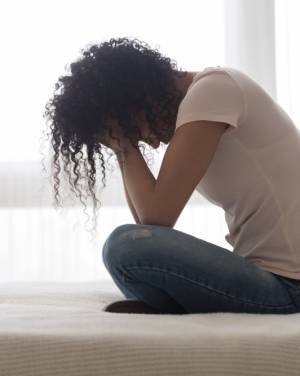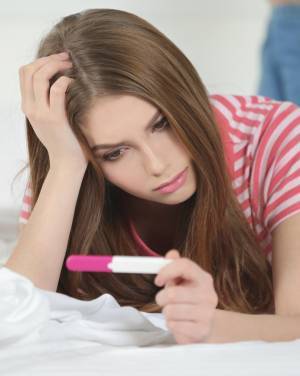Information and Advice on Emergency Contraception
- 💊 Wondering whether to take the morning-after pill? Take the quiz!
- Are you thinking about taking the morning-after pill? Or are you fearing you could be pregnant despite the morning-after pill?
- This Article provides information regarding efficacy, timing, side effects, and experiences.
-
Your Morning-After Pill Test
How Does the Morning-After Pill Work?
When Do I Take the Morning-After Pill?
EllaOne® vs. Levonelle®?
Can You Take the Morning-After Pill on Birth Control?
How Much Does the Morning-After Pill Cost and Where Can I Get It?
Side Effects
Morning-After Pill Experiences
Where Do I Go From Here?
Morning-After Pill – Quiz
Are you wondering whether the morning-after pill is right for you? Answer three multiple choice questions and receive an immediate professional evaluation on your screen!
How Does the Morning-After Pill Work?
The emergency contraceptive pill postpones ovulation. You can only get pregnant if sperm is present in your body during your fertile window. This is around your time of ovulation. The purpose of the emergency contraceptive pill is to postpone ovulation. You can only get pregnant if sperm is present in your body during your fertile window. This is around your time of ovulation. By inhibiting or delaying ovulation, the morning-after pill aims to prevent sperm cells from being capable of fertilisation at the time of ovulation. However, sperm survives in the female body for up to five days.
If ovulation has already occurred when taking the morning-after pill, it cannot be ruled out that the active ingredient may prevent the implantation of an already fertilised egg. The hormones in the morning-after pill hinder the establishment of the uterine lining with essential nutrients, thus making it inhospitable for a fertilised egg.
A fertilised egg may also be hindered from travelling down the fallopian tube (place of conception) to the uterus. The hormones in the morning-after pill can interfere with fallopian tube motility, causing the fertilised egg to die in place.
When to Take the Morning-After Pill?
There are two types of morning-after pill:
- Levonorgestrel (Levonelle®)
To be taken within 72 hours, i.e., three days, of sexual intercourse - Ulipristal acetate (EllaOne®)
To be taken within 120 hours, i.e., five days, of sexual intercourse
Both active ingredients show the best results if taken within 12 hours of sexual intercourse.
One dose suffices for each particular cycle. However, other medications may counteract its effect.
Both levonorgestrel and ulipristal acetate are meant to be taken before ovulation.
EllaOne® vs. Levonelle®
The active ingredients of ellaOne® and Levonelle® differ. Both are intended, among other things, to inhibit the body's natural estrogen, which is primarily responsible for egg maturation, ovulation, and the establishment of the uterine lining.
EllaOne®’s active ingredient, ulipristal acetate, is a selective progesterone receptor modulator. It inhibits the reception of progesterone (aka pregnancy hormone).
EllaOne® provides a high dosage of the active ingredient, allowing it to be taken within a longer time span. The downside is that it may also come with more significant side effects. When taking EllaOne®, it is more likely that other effects come into play regarding the transportation and implantation of a fertilised egg, as recent studies show.
Levonelle® contains the progestin levonorgestrel, a synthetic version of the pregnancy hormone progesterone. It should ideally be taken within twelve hours of intercourse and no later than 72 hours (3 days) after having sex.
| EllaOne® | Levonelle® | |
|---|---|---|
| Active Ingredient | Ulipristal acetate | Levonorgestrel |
| Time Frame | Within 120 hours (5 days) of sexual intercourse | Up to 72 hours, preferably within 12 hours of sexual intercourse |
| Stats: Number of pregnancies (per 100 users) |
|
|
Source²
Can You Take the Morning-After Pill on Birth Control?
Perhaps you are on birth control but skipped two or more doses or are concerned about a possible pregnancy for other reasons. Now you are wondering whether you can take the morning-after pill on birth control: While it is not necessary to use Levonelle® if birth control was used as prescribed, Levonelle® does not cancel out birth control, nor does birth control cancel out Levonelle®. You can resume taking any form of birth control immediately following Levonelle® (active ingredient levonorgestrel).
This holds true for Levonelle® only. When using EllaOne® (active ingredient ulipristal acetate), you must wait at least five days before using any form of hormonal birth control (pill, patch, injection, ring). Otherwise, the medications may cancel each other out.
How Much Does the Morning-After Pill Cost and Where Can I Get It?
- The morning-after pill can be purchased over the counter at your local pharmacy.
- Prices range from £13.49 to £39.90, with EllaOne® being the more expensive choice.
- They are also available for free at GPs and hospital emergency departments.
- Minors under the age of 16 need a prescription to obtain emergency contraception pills.
Side Effects
The morning-after pill purposefully alters your hormone levels. This can be accompanied by side effects, including nausea, dizziness, abdominal pain, vomiting, and delayed menstruation. Some women experience spotting or inter-menstrual bleeding and other deviations from their regular cycle.
For these reasons, the morning-after pill is also referred to as "emergency contraception" since it should not be used on a regular basis.
Taking the morning-after pill often causes the next menstrual period to be pushed back, which can cause uncertainty and concern about a possible pregnancy.
Experiences With the Morning-After Pill
"On 07/20, I had sex with my boyfriend. Right at the end, the condom burst... we drove to the pharmacy to get the morning-after pill. (...) Six days later, on 07/26, I had some spotting for three days (...) My period was supposed to start on Aug. 8, but it still has not come... Do I wait some more? Or do I need to do something? What is my next step?"
– This experience was shared (in German) on profemina's open forum.
If this is your situation, and you are concerned about whether you could be pregnant in spite of the morning-after pill, check out our article: Pregnant Despite Morning-After Pill for advice and information.
Where Do I Go From Here?
You probably feel the time crunch and sense the need to act quickly. At the same time, you might wonder whether the morning-after pill would even work for you — and what you would do if you ended up pregnant...
Try these tips:
Take a deep breath and choose not to rush. You have at least a few hours if not a few days to decide what to do.
You are doing what is most profitable to you right now: researching the facts. You may discern that your fertile window is still a long way off, making the morning-after pill unnecessary — or your ovulation has already taken place, making the morning-after pill ineffectual.
Ask your doctor or pharmacist if you want more information about the emergency contraceptive pill's side effects and applicability.
Try our free tests:
- 🤰 Could I be pregnant? — Online Pregnancy Test
- 💗 Could I be pregnant without penetration?
- 🤔 Could my symptoms be early signs of pregnancy?
- 🧑⚕️ (Suspecting a) pregnancy – How soon to see a doctor?
- 🤱 Pregnant again after a C-section: Is it too soon?
-
The morning-after pill works by delaying an imminent ovulation. Depending on the active ingredient, it is effective if taken within 3 or 5 days of sexual intercourse. Consult your healthcare provider or pharmacist if unsure whether this is the right timing for the morning-after pill.
-
A single dose, taken after intercourse, suffices. If the situation arises again within the same menstrual cycle, consult your doctor or pharmacist before repeating a dose. The morning-after pill alters your hormone levels. Therefore, it is not advisable to use it regularly in place of contraception. Carefully weigh whether using the morning-after pill as an emergency contraceptive is what you want.
-
Every woman gets to decide whether it makes sense for her to take the morning-after pill. The effectiveness of the morning-after pill hinges on multiple factors, such as your current phase in your menstrual cycle or whether ovulation has yet to occur. Side effects should also be taken into account. Consult your doctor or pharmacist, if you wonder whether the morning-after pill is right for you.


